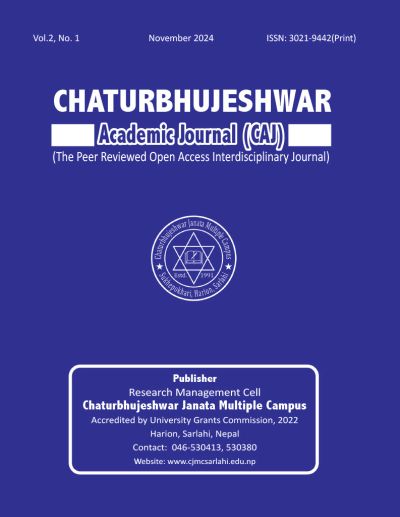Agency, Personal Autonomy, and Transformation in Tagore’s Malini
DOI:
https://doi.org/10.3126/caj.v2i1.72217Keywords:
autonomy, transformation, religious conflict, Hinduism, BuddhismAbstract
This paper examines agency, personal autonomy, and transformation in Rabindranath Tagore’s Malini (1896). An Indian poet, writer, and philosopher, Tagore (1861-1941) wrote Malini, referencing Buddhist philosophy, initially written in Sanskrit. Malini, the little girl and protagonist of the play, uses her agency and personal autonomy to transform and resolve the religious tension between Hinduism and Buddhism in Kashi. How Malini uses her agency to transform the Hindu kingdom Kashi into secularism for the equal treatment of all religions and how much the characters’ agency and personal autonomy contribute to changing the play is searched. This is qualitative research and collects data from the play Malini. It uses Michael Garnett’s “Agency and Inner Freedom” and Margaret S. Archer’s “Resisting the Dissolution of Humanity” as the theoretical framework. It concludes that agency and personal autonomy are the keys to the transformation that engenders inner freedom in the agent and empowers them to resist human tyranny.




